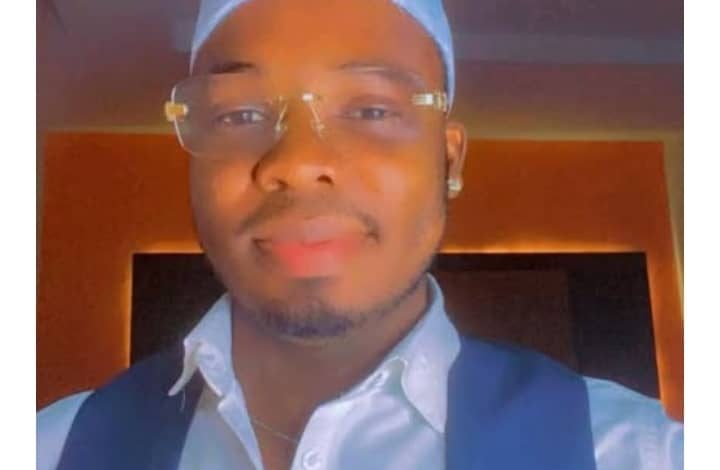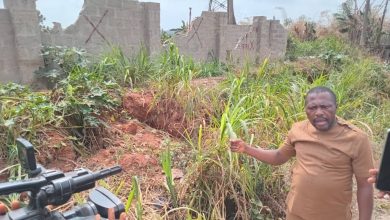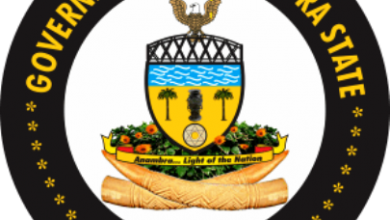
By Our Correspondent
A wave of grief swept through Nnamdi Azikiwe University (UNIZIK), Awka, on Monday morning as a promising young undergraduate, Tochi Martins Attah, slumped and died while playing football at Elmada Hostel, a private student lodge near the campus.
The incident, which occurred during a casual early-morning football session, has thrown the university community, his native Useh Village in Enugu State, and political circles into mourning.
Tochi, popularly known as T-Funds, was a 300-level student of Microbiology and the younger brother of Hon. Dr. Simon Attah, the All Progressives Congress (APC) Chairman in Igbo-Etiti Local Government Area of Enugu State.
Eyewitness accounts reveal that he collapsed suddenly during the game and was rushed to a nearby medical centre, but was declared dead on arrival.
His untimely demise has prompted an outpouring of grief and reflection, with tributes flooding social media under hashtags such as #RIPTochi and #UNIZIKMourns.
Friends and classmates describe him as cheerful, enterprising, and highly ambitious, with a recent desire to transition into medical studies.
“Tochi wasn’t just a friend; he was a beacon of encouragement,” one classmate shared online. “He checked up on people. We just spoke last week about his future plans.”
Known across campus for his involvement in student entrepreneurship and cryptocurrency trading under the brand name T-Funds Exchange, Tochi had carved a niche as a resourceful and trusted peer advisor in financial matters.
In a formal condolence message, President of Useh Youths, Engr. Sabastine Aku, confirmed the news of his passing:
“With heavy heart but total submission to God’s will, the Attah family and entire Useh Village sadly announce the passing of our son, brother and friend, Late Dr. Attah Tochi Martins (a.k.a. T-Funds Exchange)… May God accept his soul and grant the family comfort during this difficult time.”
The news has also shaken political allies of Hon. Dr. Simon Attah. Several stakeholders from Enugu North Senatorial District are expected to visit the family in coming days, with funeral preparations already underway in Useh Village.
While the precise medical cause of death remains unconfirmed—pending any official autopsy report—the incident has once again reignited concerns over student health and institutional preparedness for medical emergencies on Nigerian campuses.
Experts point to a troubling pattern: young Nigerians collapsing and dying during recreational sports. In 2022, a 400-level Engineering student at the University of Benin (UNIBEN) died under similar circumstances, later traced to an undiagnosed heart condition.
According to Dr. Uche Onyema, a sports medicine physician at the University of Nigeria, Nsukka:
“These tragic deaths are largely preventable. Regular cardiovascular screenings—even ECGs—can detect abnormalities. Unfortunately, such practices are not institutionalised in Nigerian universities.”
Most university hostels and off-campus lodges—such as Elmada, where Tochi collapsed—lack medical infrastructure, trained first responders, or emergency plans. The absence of basic facilities like automated defibrillators (AEDs) further compounds the risk.
Critics are calling for sweeping reforms. The National Universities Commission (NUC), they say, must enforce stricter health regulations in hostels and mandate periodic health checks for students, especially those engaged in strenuous activities.
Tochi’s death, they argue, should serve as a wake-up call.
“If we don’t act now, we’ll be writing the same report again,” one student leader lamented. “Tochi’s story must lead to change.”
At press time, the university management had yet to release an official statement. However, the UNIZIK Student Union Government is reportedly preparing an internal report and planning a campus-wide health awareness campaign. Students are also organizing a candlelight memorial in Tochi’s honour, to be held at the football pitch where he collapsed.
Meanwhile, Tochi’s remains have been returned to his hometown for burial rites. His funeral is expected to draw dignitaries from academic, political, and religious communities.
Tochi Martins Attah was more than a statistic. He was a student, an entrepreneur, a beloved son and brother, and a future medical professional. His death is a reminder of the fragility of youth and the cost of institutional negligence.
As the nation mourns yet another preventable loss, the call grows louder: Nigerian institutions must prioritize the health and safety of students—not after tragedy strikes, but before.




